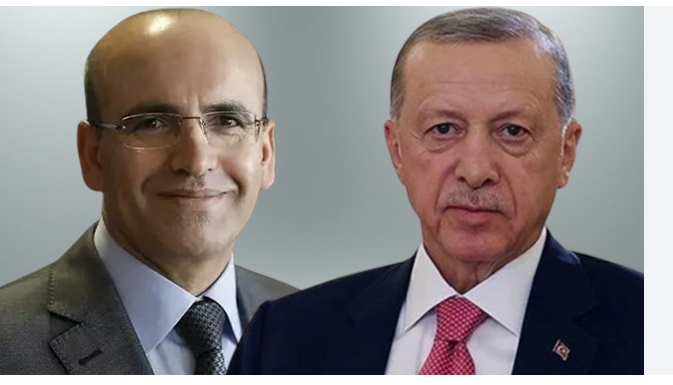Turkish President Recep Tayyip Erdoğan has reiterated his full confidence in Finance Minister Mehmet Şimşek, dispelling widespread speculation of an imminent reshuffle of the country’s economic team. In the duration of the election campaign, frequent rumors of disagreements between Erdogan and his economy czar propped up in social media, raising market volatility and possibly deterring de-dollarization and inflows of global financial investment.
“Like the rest of the world, we are not ignoring the inflation problem that is plaguing our country,” Erdoğan said at a rally in Turkey’s eastern city of Batman, signaling a continuation of the government’s economic policy course.
“You have recently heard from Mehmet Şimşek, an esteemed son of Batman. I have full confidence in him regarding these matters. We expect the positive effects of the economic program we have implemented to be visible in the second half of the year.”
The statement comes at a critical time as Turkey is facing one of the highest inflation rates in the world. Accompanying the high inflation are historic highs in interest rates after the central bank’s decision to raise the key interest rate to 50 percent.
This move marked a significant departure from the country’s previous economic policy and sparked criticism of the Justice and Development Party (AKP) government’s handling of the economy.
The support for Şimşek serves to dispel rumors that the finance minister was about to be sacked after the local elections on March 31. This speculation gained momentum as interest rates rose and reached levels only seen before Erdoğan’s time in office, casting a shadow over the narrative of economic prosperity under the AKP
A decade ago, Erdoğan would have pointed to the key interest rate of 47 percent shortly before his AKP came to power in 2002 and bragged about the success of his government in bringing it down to single digits. Now interest rates have also skyrocketed during his tenure.
Critics, including Ali Babacan, chairman of the Democracy and Progressive Party (DEVA) and a former AKP member, have pointed out the stark contrast between Erdoğan’s previous stance on lowering interest rates and the current economic realities. The irony of the situation has not escaped observers since Turkish economic policy appears to be making a sharp U-turn in response to increasing inflationary pressures.
Furthermore, the political implications of economic policy have come under the spotlight in the run-up to the local elections on March 31.
Some experts asserted that if Erdogan were to lose Istanbul elections once again, he could scapegoat Simsek, to replace him with a heterodox policy maker, i.e. go back to cutting rates and controlling the exchange rate via informal capital controls.
The assurance of Şimşek’s continuing role in economic leadership could aim to boost confidence among both voters and the markets.
At 12 noon, Turkey’s main equity index is by 2.22% largely in reaction to Erdogan’s endorsement of the economic austerity program.
Follow our English language YouTube videos @ REAL TURKEY: https://www.youtube.com/channel/UCKpFJB4GFiNkhmpVZQ_d9Rg
And content at Twitter: @AtillaEng
Facebook: Real Turkey Channel: https://www.facebook.com/realturkeychannel/
